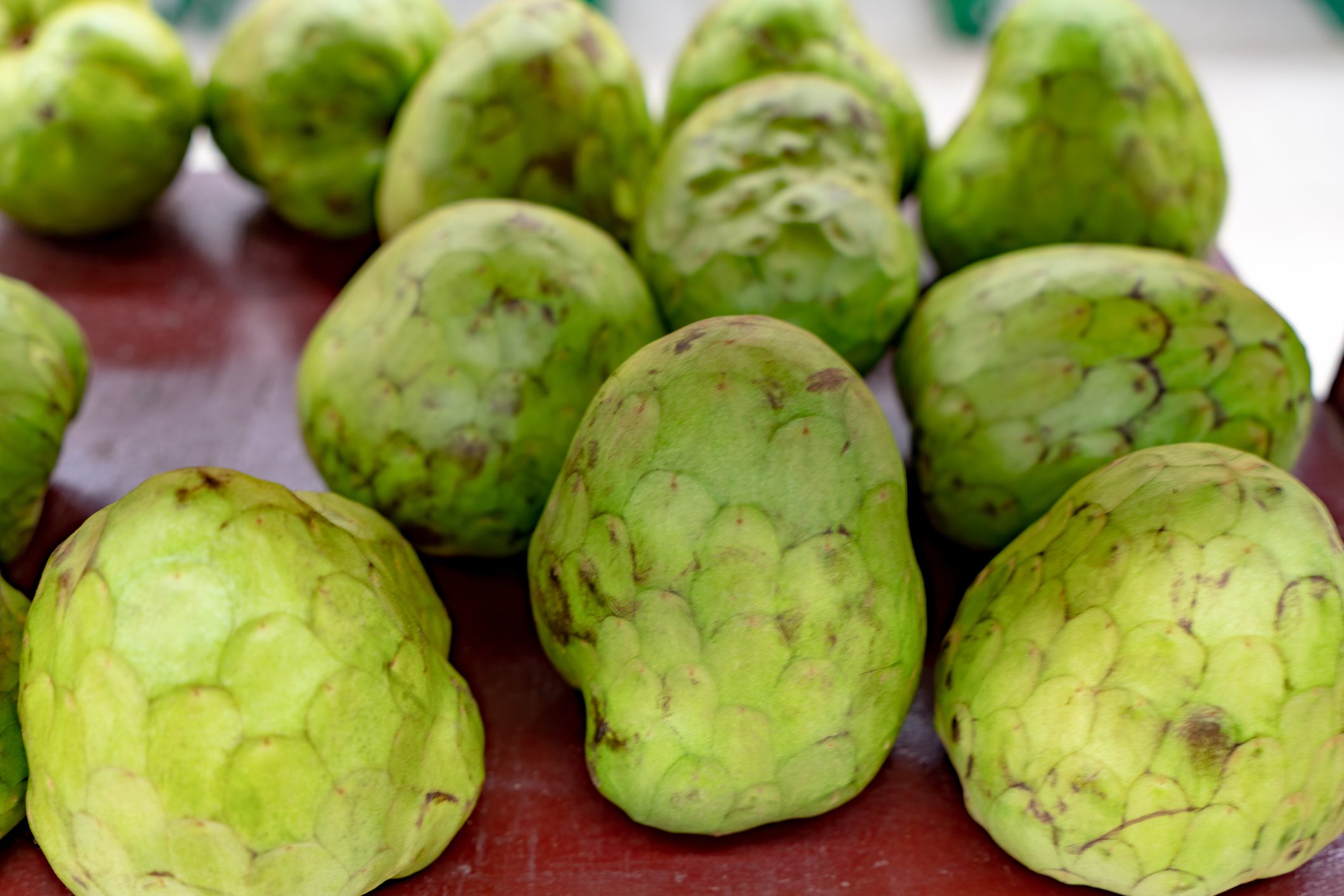;)
Custard apples are commonly known as seethaphal in India, and as cherimoya in South America, but they are only just starting to become a popular addition to the Western diet.
These fruits have a high nutritional benefit, especially for pregnant women. It has a sweet flavor, and thick, creamy flesh once the black seeds are removed.
Custard apples are an ideal fruit for expectant mothers, and have an impressive array of nutrients including vitamins, minerals, protein, carbs, fiber, and essential fats.
Vitamins A and C

These two vitamins in the custard apple are essential for the development of the skin, hair, eyes, and body tissues of the developing baby in the womb, and these vitamins also contribute to building the nervous system.
Calories
These creamy fruits are higher in calories than many others (101 Cals per 100g), so eating them in moderation is a good idea, as medical professionals no longer advise expectant mothers to “eat for two”.
There are no fats or cholesterol in the fruit, and most of the calories come from carbohydrates.
Fiber

Custard apple contains 2.4 grams of fiber per 100g, and it’s important for pregnant women to eat plenty of fiber to avoid constipation.
Copper
The daily requirement for copper during pregnancy is 100 mg, and custard apple is a rich source of copper. This mineral helps to improve hemoglobin levels, and could help to prevent premature labor, as well as promote healthy skin, tendons, and blood vessels in the fetus.
Vitamin B6

Custard apple contains a good amount of vitamin B6, which studies have linked to alleviating nausea. Good news for those who suffer from morning sickness!
Possible Issues with Custard Apple
While custard apple is usually great for pregnant women, there are some situations where you should take care:
Don’t eat unripe custard apple – it can irritate your stomach, which may lead to digestive problems. Don’t eat the black seeds of the custard apple, as they may be harmful. Remove them before eating the flesh. If you have gestational diabetes, don’t eat custard apple as it is high in sugars.
Choosing the Best Fruit

Ripe custard apples have a pale green skin, and are juicy and give off an aromatic scent. You can buy the darker green unripe fruits and store them at room temperature to ripen.
Try adding a little lime juice to the custard apple to give a complementary flavor to the sweetness. Or you can add it to a smoothie or ice cream.
;Resize,width=767;)
